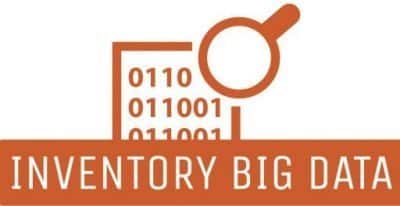Description
As IT Systems Manager, Jasper is responsible for overseeing the information technology systems and infrastructure of the organization he works for. This includes ensuring that the company’s hardware, software, and network systems are functioning properly, and managing the team responsible for maintaining and updating these systems. Jasper’s role also involves analyzing the organization’s technology needs, developing strategies to meet those needs, and implementing new technologies to improve efficiency and productivity. Overall, Jasper’s job involves a combination of technical expertise and managerial skills to ensure that the company’s IT systems are running smoothly and supporting the organization’s goals.
Job description:
The IT Systems Manager will oversee the design, implementation, and maintenance of all information technology systems within an industrial company. This includes managing hardware and software, as well as ensuring that systems meet the needs of various departments. The IT Systems Manager will also be responsible for managing a team of IT professionals, delegating tasks, and ensuring that all systems are secure and reliable.
Key Responsibilities:
- Oversee the installation, configuration, and maintenance of all hardware and software systems.
- Ensure that all systems are secure and reliable, and that data is protected from unauthorized access.
- Develop and implement IT policies and procedures to ensure compliance with industry standards and regulations.
- Manage a team of IT professionals, delegating tasks and ensuring that all team members are working effectively.
- Work with other departments to identify and address their technology needs.
- Plan and implement new technology initiatives to improve efficiency and productivity.
- Manage the IT budget and ensure that all expenses are within the approved budget.
- Stay up-to-date with new technology developments and trends, and make recommendations for their adoption.
Requirements:
- Bachelor’s degree in Computer Science or a related field.
- At least 5 years of experience in IT management, preferably in an industrial setting.
- Experience managing a team of IT professionals.
- Strong understanding of hardware and software systems, as well as network infrastructure.
- Knowledge of industry standards and regulations related to IT security and data privacy.
- Excellent communication and interpersonal skills, with the ability to work effectively with other departments and stakeholders.
- Strong project management skills, with the ability to manage multiple projects simultaneously.
- Ability to think strategically and make sound decisions based on data and analysis.
Salary: The salary for an IT Systems Manager in an industrial company can vary depending on the size of the company and the location. However, the average salary range is between $XX,000 and $YYY,000 per year. Additional benefits such as health insurance, retirement plans, and vacation time may also be offered.
There are several ways you can strengthen your skills for an IT Systems Manager role in an industrial company without seeking employment at a specific company. Here are a few suggestions:
- Take online courses: There are many online courses available that can help you learn the skills necessary for an IT Systems Manager role. Platforms such as Udemy, Coursera, and LinkedIn Learning offer courses on topics such as networking, cybersecurity, project management, and data analytics. You can also look for courses specific to industrial companies or the manufacturing industry.
- Attend industry conferences: Attending industry conferences can be a great way to network with other IT professionals and learn about the latest trends and technologies in the industry. Look for conferences that focus on IT in manufacturing or industrial companies.
- Read industry publications: Reading industry publications such as CIO Magazine, Computerworld, and InformationWeek can help you stay up-to-date on the latest IT trends and best practices. You can also join online forums or groups related to IT in manufacturing or industrial companies.
- Participate in online communities: Joining online communities related to IT in manufacturing or industrial companies can be a great way to network with other professionals and learn from their experiences. Look for groups on LinkedIn or Facebook, or participate in online forums such as Reddit or Stack Overflow.
- Practice your skills: Finally, the best way to strengthen your skills is to practice them. Set up a home lab to experiment with different IT systems and technologies, or work on personal projects to improve your skills in areas such as coding, networking, or cybersecurity.
By taking these steps, you can build the skills and knowledge necessary to succeed as an IT Systems Manager in an industrial company.
Interview question
- What motivated you to apply for the IT Systems Manager position in an industrial company?
Answer: As an experienced IT professional, I have always been interested in the intersection between technology and manufacturing. I am excited about the opportunity to lead the development and implementation of IT systems that can optimize the production processes, increase efficiency, and improve the overall performance of an industrial company.
- What is your experience with managing IT systems in an industrial environment?
Answer: I have several years of experience managing IT systems in an industrial setting. I have worked on projects ranging from implementing data management systems to optimizing production processes through the use of IoT devices. In my previous roles, I have also been responsible for managing the cybersecurity of the systems, ensuring data integrity, and compliance with industry standards.
- Can you describe your experience with implementing and managing ERP systems?
Answer: In my previous roles, I have led the implementation of several ERP systems for different companies. I have experience in the entire process, from requirements gathering to system design, testing, and deployment. I also have experience in managing the ongoing maintenance and upgrades of the system, ensuring that it meets the evolving needs of the business.
- How do you approach managing cybersecurity in an industrial setting?
Answer: Cybersecurity is a critical aspect of IT systems management in an industrial setting. I believe in taking a proactive approach to cybersecurity, including regular risk assessments, vulnerability testing, and employee training. I also prioritize the use of industry-standard security measures, such as firewalls, intrusion detection systems, and encryption.
- Can you give an example of a successful project you led that involved optimizing a production process using technology?
Answer: One example of a successful project I led was the implementation of an IoT system for a manufacturing company. By using sensors and data analytics, we were able to identify inefficiencies in the production process and make adjustments that increased productivity and reduced waste. The system also provided real-time alerts when equipment required maintenance, minimizing downtime and reducing maintenance costs.
- How do you stay up-to-date with the latest technologies and trends in the IT industry?
Answer: I am a lifelong learner and believe in constantly expanding my knowledge base. I regularly attend conferences and webinars, read industry publications and participate in online communities. I also encourage my team to do the same, so we can stay ahead of emerging trends and technologies.
- How do you prioritize IT projects and allocate resources?
Answer: I believe in taking a data-driven approach to prioritize IT projects. By analyzing the impact of each project on the business, we can allocate resources more effectively. I also prioritize projects that can deliver quick wins or have a high return on investment.
- How do you ensure that IT systems align with the overall business goals and objectives?
Answer: It’s essential to have a deep understanding of the company’s business goals and objectives when managing IT systems. I work closely with key stakeholders to identify areas where technology can support the business, and ensure that our IT systems are aligned with these goals. I also regularly review our systems to ensure that they are delivering the expected outcomes.
- Can you describe your experience in managing a team of IT professionals?
Answer: In my previous roles, I have managed teams ranging from five to fifteen IT professionals. I believe in empowering my team members and creating a collaborative and supportive work environment. I also prioritize ongoing professional development for my team members, including providing opportunities for training and certifications.
- How do you handle challenging situations or conflicts that arise in the workplace?
Answer: In my experience, open communication and a willingness to listen to all parties involved is critical in resolving conflicts. I believe in approaching challenges with a solution-oriented mindset and working collaboratively with all stakeholders to find the best path forward. In cases where a difficult decision needs to be made, I prioritize



